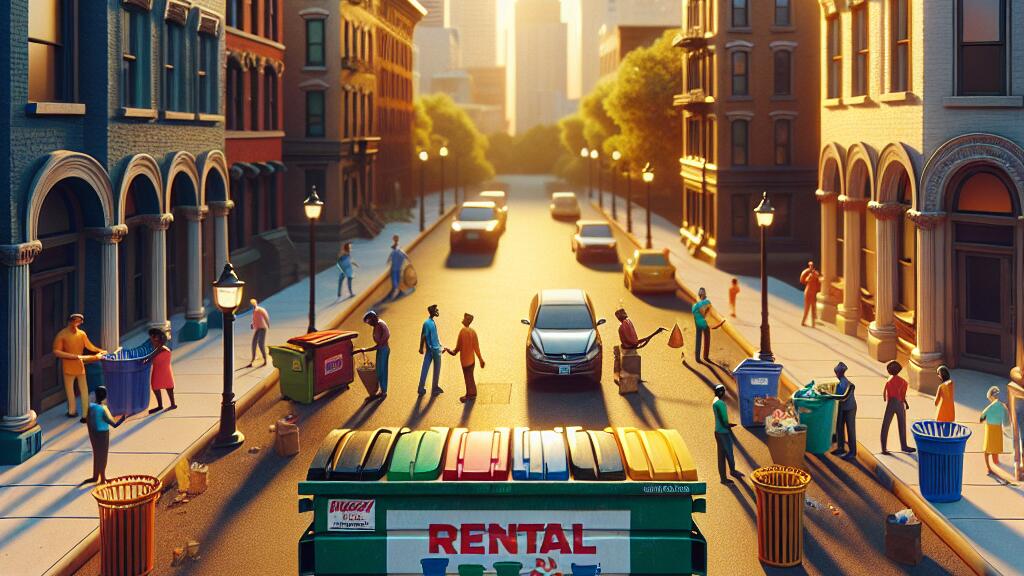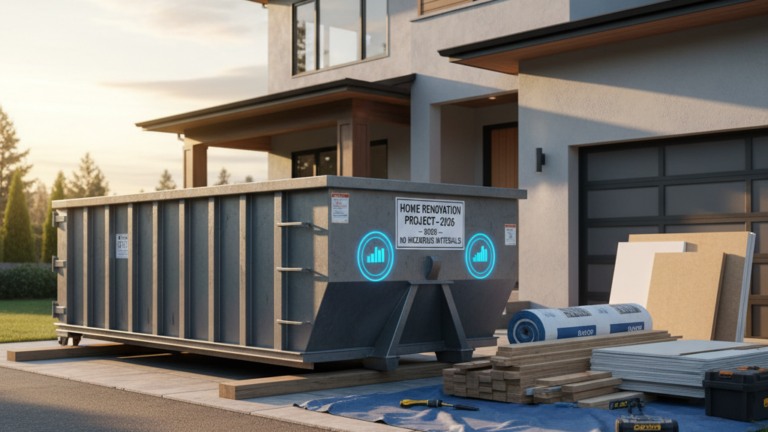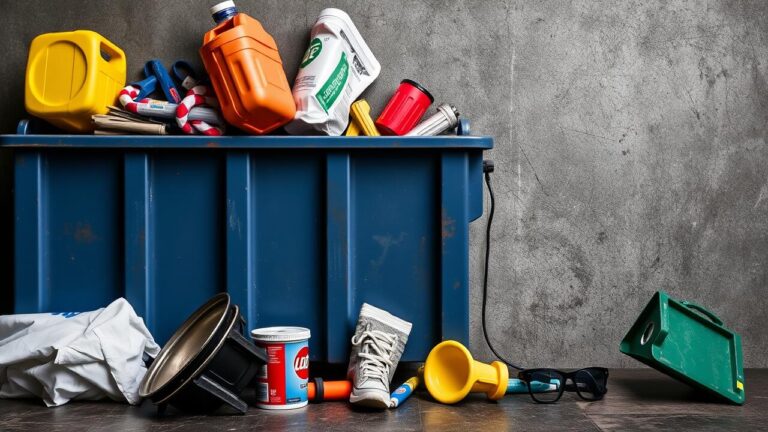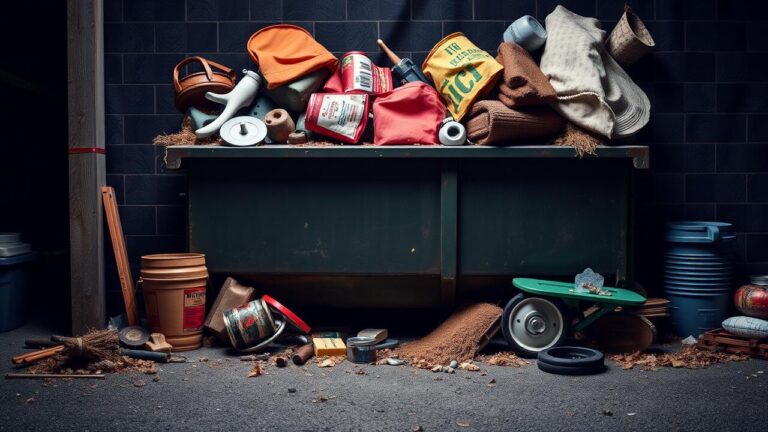7 Tips for Renting Construction Dumpsters in Indianapolis
Scheduling Delivery and Pickup
Planning for the delivery and pickup of a construction dumpster is crucial for maintaining an efficient workflow on-site. It is essential to coordinate these schedules with the dumpster rental provider to ensure that the container arrives when needed. This helps avoid delays in the project timeline. Consider factors like project milestones and weekends when determining the best time for both delivery and pickup to maximize productivity.
Communicate clearly with the rental company about your specific needs. Providing details such as project duration and expected waste volume can help them recommend the right dumpster size and ensure timely pickups. Flexibility in scheduling can also be advantageous. If your project timeline changes or if you need the dumpster for a longer period, keeping an open line of communication can facilitate quick adjustments.
Best Practices for Timing
When planning to rent a construction dumpster, consider your project timeline carefully. Determine the optimal delivery date by assessing when debris will accumulate most rapidly. Scheduling delivery early helps avoid delays and ensures the dumpster is available when needed. Likewise, plan for pickup in advance to prevent extended rental periods, which can incur additional charges. Being proactive about these dates can streamline your project and maintain efficiency.
It’s also beneficial to align the dumpster rental with other project milestones. If major construction activities are scheduled, such as demolition or extensive renovations, ensure that the dumpster is on-site to immediately handle waste as it arises. Communicating with your rental provider about your specific project phases allows you to adjust delivery and pickup schedules as needed. Efficiency in timing not only enhances workflow but also minimizes disruption to surrounding areas.
Preparing the Site for Placement
Choosing the right location for your dumpster is crucial for both accessibility and safety. Select a flat, stable area that can support the weight of the container. Make sure the site is clear of overhead obstructions, such as tree branches or power lines, which may impede the delivery process. It’s also important to ensure that there is enough space for the dumpster truck to maneuver during both delivery and pickup.
Before the dumpster arrives, remove any debris or obstacles from the designated area. This preparation helps in avoiding any potential damage to your property or the truck. Consider marking the placement area to provide clear guidance for the delivery team. Ensuring that the site is well-lit can enhance safety, especially if the delivery occurs in low-light conditions. Ultimately, proper preparation aids in a smooth and hassle-free rental experience.
Ensuring Accessibility and Safety
Creating a safe and accessible placement for your construction dumpster is crucial for both workers and equipment. Select a location that offers ample space for trucks to maneuver during delivery and pickup. Avoid placing the dumpster on uneven ground or soft soil to prevent tipping. If using public streets or alleys, be sure to check local regulations regarding street permits and traffic interruptions.
Consider potential hazards around the dumpster area. Clearly mark the space to keep pedestrians and vehicles at a safe distance. If the dumpster is placed near walkways, ensure there is sufficient passage for people to avoid obstruction. The use of safety cones or barriers can further enhance visibility and safety, reducing the risk of accidents during the busy project duration.
Properly Loading the Dumpster
Maximizing the space in your dumpster can lead to more efficient waste management and potentially lower costs. Start by breaking down larger items like furniture and boxes to create more room. Distribute the weight evenly across the dumpster to maintain balance. Stacking items vertically instead of tossing them in haphazardly can also help you utilize the available space effectively. Be cautious not to overfill the dumpster, as most rental companies have guidelines regarding weight limits and load height.
Consider the types of materials you’re disposing of and separate them accordingly. Place heavier items at the bottom and lighter materials on top to prevent crushing delicate debris. Avoid disposing of hazardous materials like batteries or chemicals, as they often require special handling. Organizing waste not only makes loading easier but also simplifies the recycling process. Different types of waste can be recycled or repurposed, leading to a more eco-friendly approach to disposal.
Tips for Efficient Waste Management
Effective waste management starts with planning how to fill the dumpster. Begin by separating your waste according to material types, such as metal, wood, and drywall. This separation enables easier recycling and disposal. Loading the dumpster carefully also ensures that you maximize space. Keep heavier items on the bottom and lighter items on top to maintain balance and prevent spillage when the dumpster is moved.
Another valuable practice is to avoid overloading the dumpster. Be aware of the weight limit imposed by the rental company, as exceeding this limit can lead to additional fees and complications during disposal. If you have large debris, dismantle it into smaller pieces to save space. Additionally, refrain from placing prohibited items inside the dumpster, including hazardous materials. Understanding the guidelines provided by the rental service helps in adhering to regulations and ensures a smoother disposal process.
Disposal and Recycling Options
Choosing the right disposal and recycling options can significantly impact the environment and your overall waste management strategy. Many dumpster rental companies in Indianapolis provide specific guidelines regarding what materials can be disposed of in their containers. Understanding these guidelines is vital for ensuring compliance with local regulations and minimizing landfill contributions. Items such as concrete, wood, metals, and certain types of plastics often have designated recycling facilities available.
Adopting eco-friendly practices not only helps in reducing waste but can also lead to cost savings. Many organizations and recycling centers focus on repurposing materials, diverting them from landfills. Consider working with a vendor that prioritizes recycling efforts and provides clear instructions on how to separate recyclables from general waste. This proactive approach fosters a responsible way of handling construction debris while contributing to sustainability efforts within the community.
EcoFriendly Practices
When renting a construction dumpster, incorporating eco-friendly practices can significantly reduce the environmental impact of your project. Start by separating recyclable materials from general waste. Many dumpster rental companies offer specific containers for recyclables, making it easier to ensure materials like metal, wood, and concrete don’t end up in a landfill. This approach not only helps the environment but can also save on disposal fees, making it a cost-effective choice.
Additionally, consider donating usable items instead of throwing them away. Non-profit organizations often accept materials like furniture, fixtures, and appliances, which can contribute to community welfare. Properly disposing of hazardous materials is crucial as well. Items such as paints or chemicals require specialized handling and should never be discarded in a standard dumpster. By prioritizing these practices, you contribute to a more sustainable approach to construction waste management.
FAQS
What is the best time to schedule delivery for a construction dumpster?
The best time to schedule delivery is at least a few days in advance to ensure availability. Early morning deliveries can also help you maximize your workday.
How can I prepare my site for dumpster placement?
To prepare your site, ensure there is enough space for the dumpster, clear any obstacles, and make sure the area is accessible for the delivery truck.
What are some tips for loading a dumpster efficiently?
To load a dumpster efficiently, break down large items, distribute the weight evenly, and avoid overfilling to ensure the lid can close properly.
What types of waste can I dispose of in a construction dumpster?
Most construction dumpsters can accept materials like wood, drywall, metal, and concrete. Check with your rental company for specific restrictions.
Are there eco-friendly disposal options available for construction waste?
Yes, many rental companies offer recycling options and can guide you on how to separate recyclable materials from regular waste for environmentally friendly disposal.







